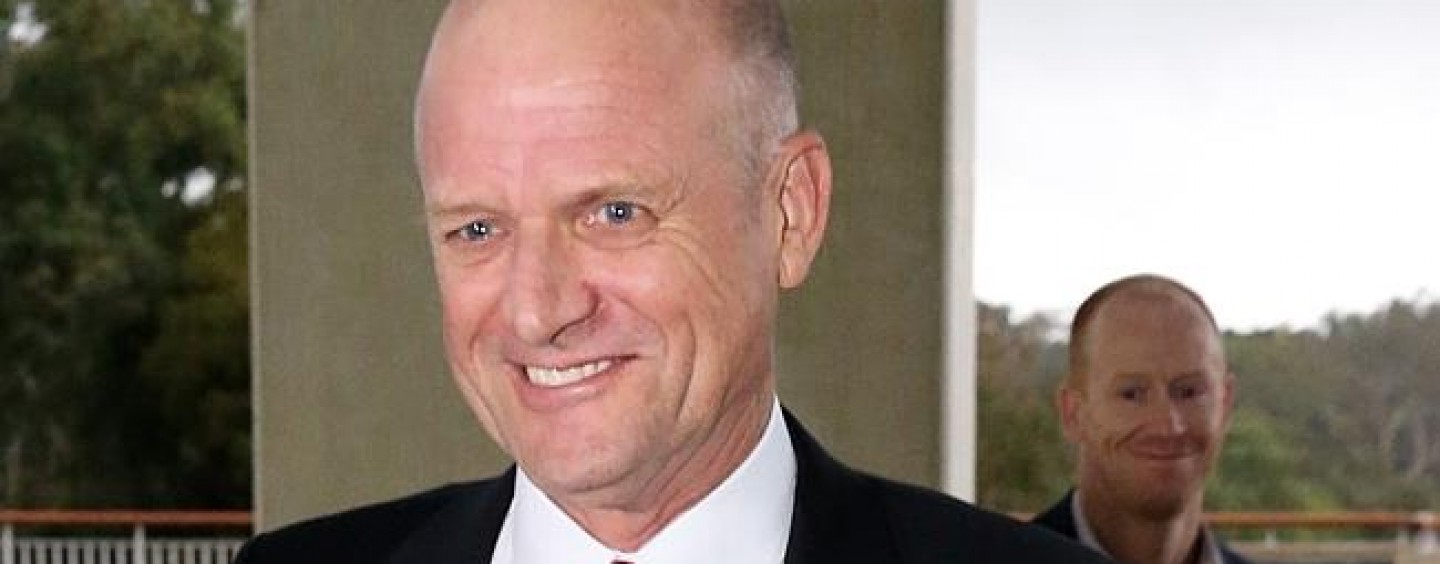
David Leyonhjelm declares war on nanny state
By Jared Owens, The Australian, 26 June 2015:
Libertarian senator David Leyonhjelm has launched a broad-ranging parliamentary inquiry into the burgeoning “nanny state”, declaring war on laws and regulations that prevent Australians having fun at their own risk.
The Senate inquiry, which was yesterday unopposed by other senators, will examine any laws that restrict personal choice “for the individual’s own good” including the sale and use of alcohol, tobacco and pornography.
The economics committee inquiry, to be chaired by the Liberal Democrats senator, will also test the claims of public health experts about bicycle helmets, alcohol laws and violent video games.
Senator Leyonhjelm, a staunch defender of “the right to make bad choices”, anticipated the one-year inquiry would focus on the rise of “nanny state” laws.
“It’s not the government’s business unless you are likely to harm another person. Harming yourself is your business, but it’s not the government’s business,” he said.
“So bicycle helmets, for example, it’s not a threat to other people if you don’t wear a helmet; you’re not going to bang your bare head into someone else.
“I’m expecting the people who think we should all have our personal choices regulated will find this uncomfortable. These are the people who think they know better than we do what’s best for us.”
The terms of reference include power to inquire into any other measures introduced to restrict personal choice, which would allow the inquiry to look at other areas including seatbelt laws.
Senator Leyonhjelm said the inquiry would not focus on firearms or “drugs of addiction”, such as ice and heroin, as those laws were designed to suppress crime and protect innocents. He is pursuing those issues through other parliamentary inquiries.
Sydney University public health professor Simon Chapman said Australians should be grateful for nanny-state interventions which save lives, such as enforceable safety glass in showers.
“Many years ago, before they had enforceable safety glass in showers, people were being regularly shredded in the shower and people set the standard for it,” Dr Chapman said.
“Laws requiring seat belts and bicycle helmets are … such a trivial intrusion on liberty that only people who are as obsessed by this stuff as David Leyonhjelm would make it their life mission to increase road deaths so they can philosophically tick a box.’’
Public Health Association of Australia chief executive Michael Moore said restrictions on alcohol and tobacco advertising were needed to ensure freedom of choice and prevent consumers being “dominated” by industry influence.
“Spending on positive messages … costs a lot of money, so the alternative to prevent domination is to restrict what industry can do and level the playing field,” he said.
Institute of Public Affairs senior fellow Chris Berg hoped the inquiry would prompt a “fundamental rethink” of Australia’s “paternalist democracy”.
“This is an important inquiry because it’s important to understand the relationship between citizen and state. What Senator Leyonhjelm is doing is to clarify that relationship,” Mr Berg said.
“I think all major parties in Australian politics support the idea that governments know better than the people they govern. I disagree.”





